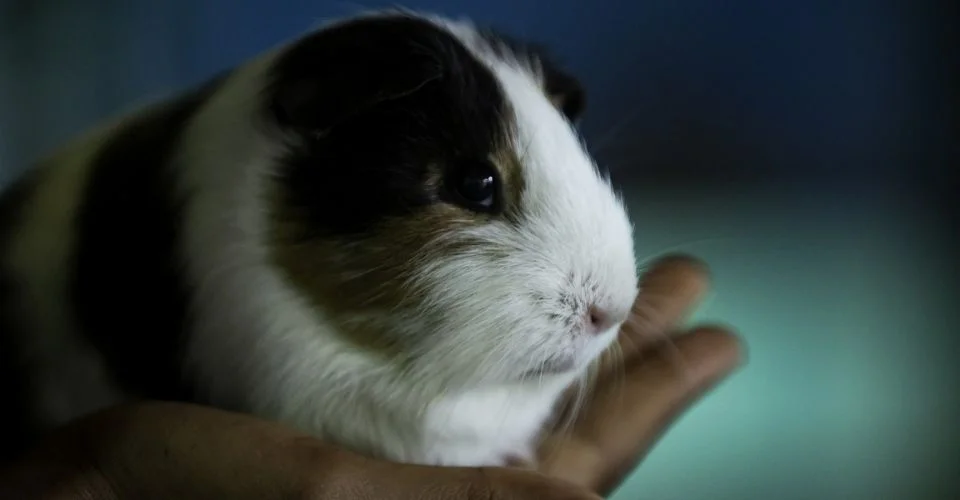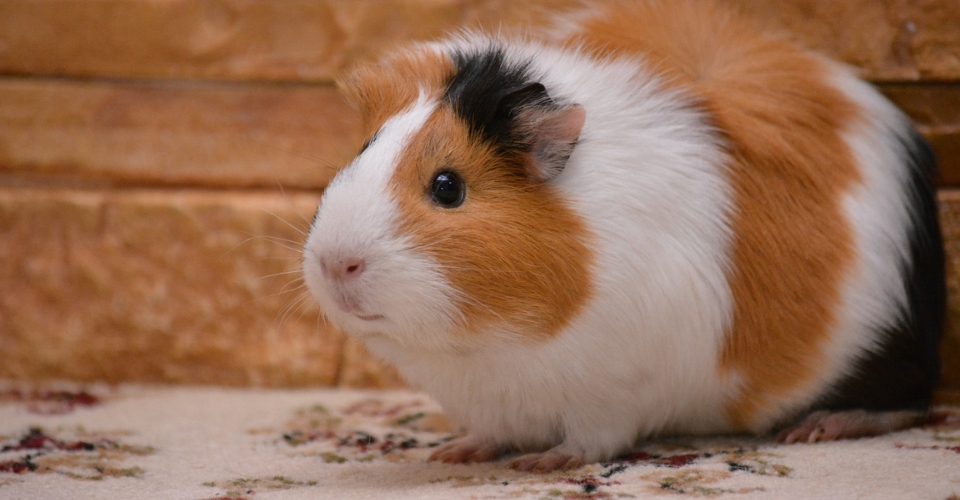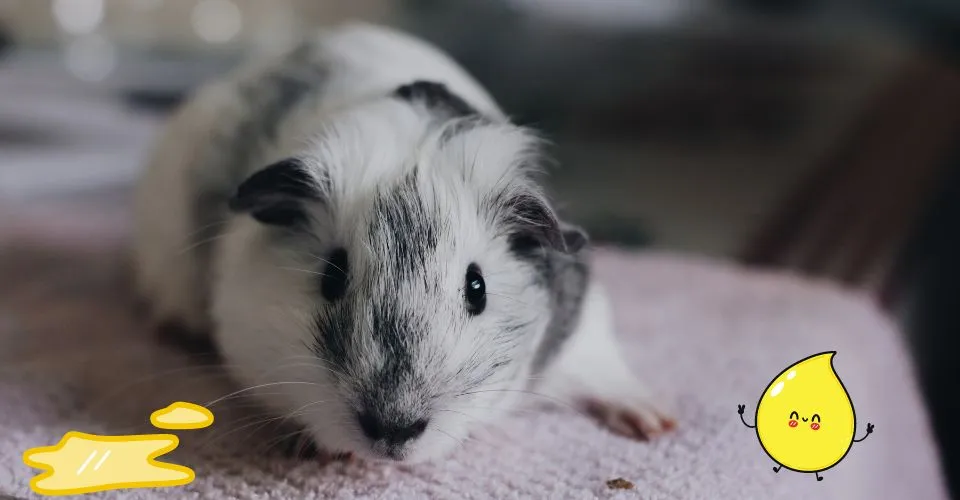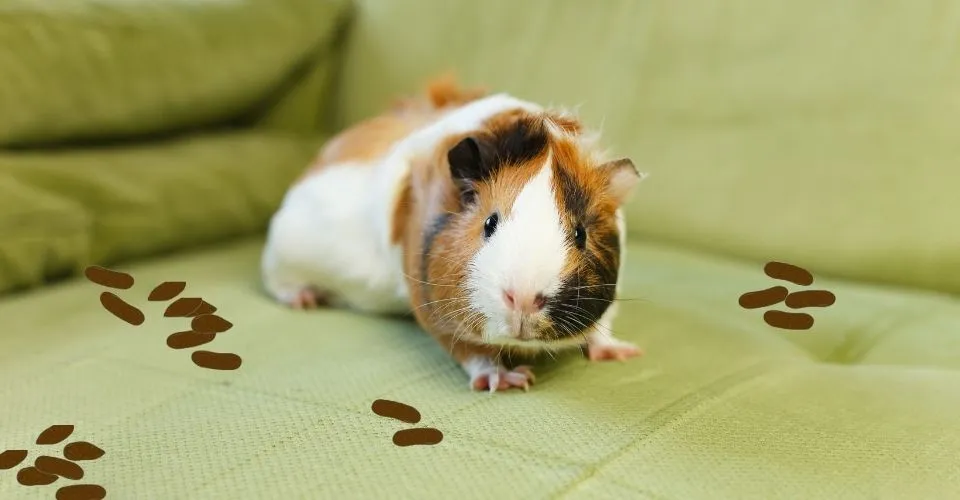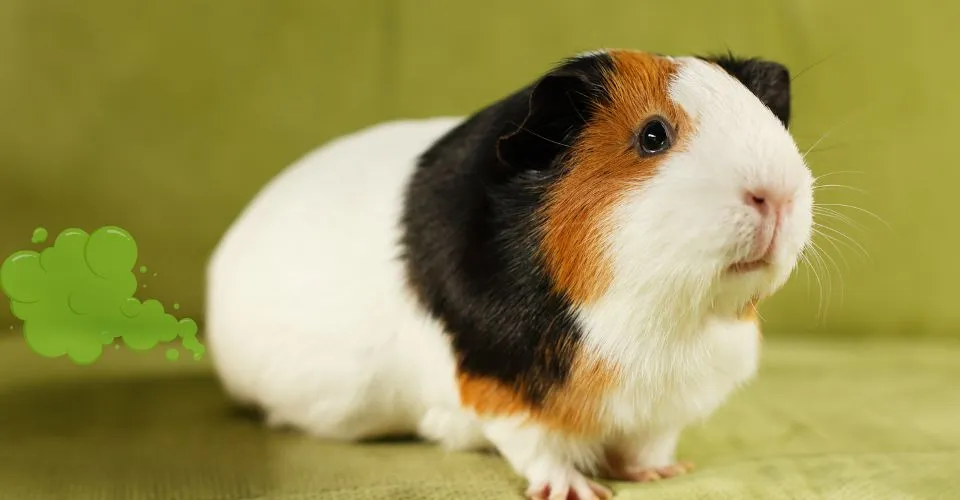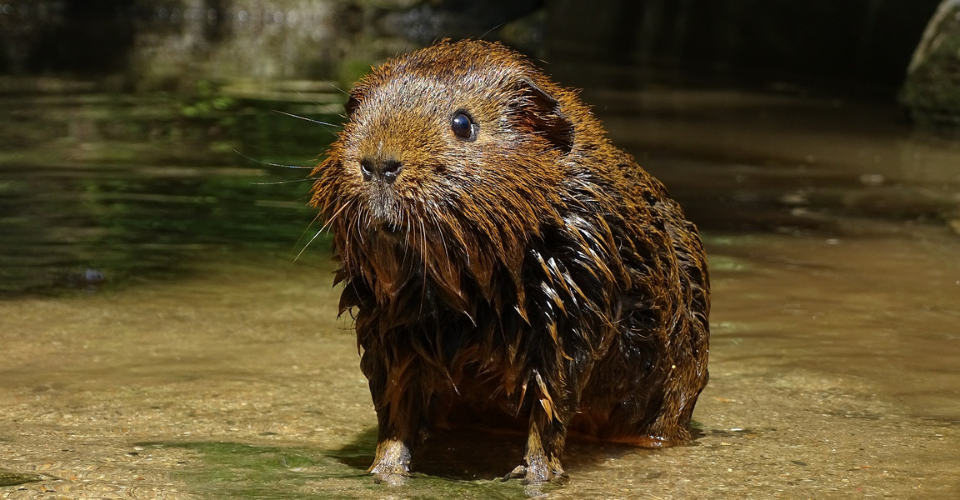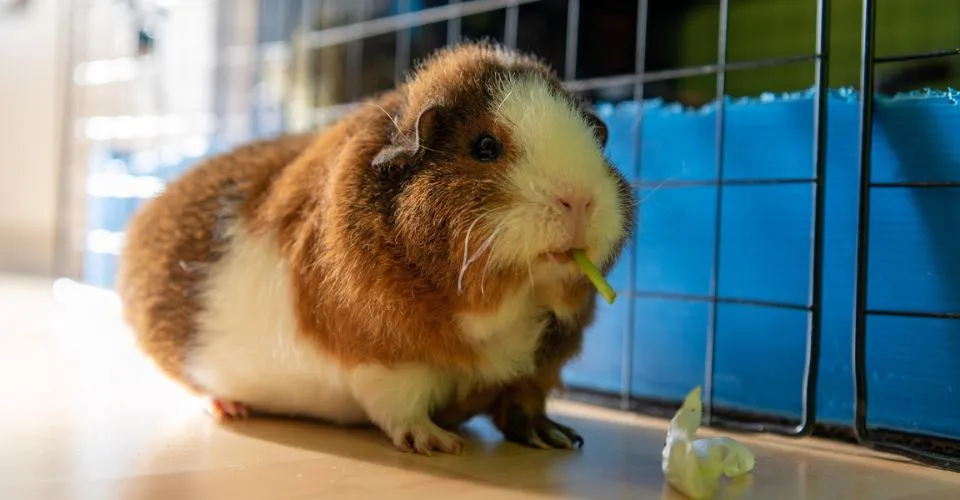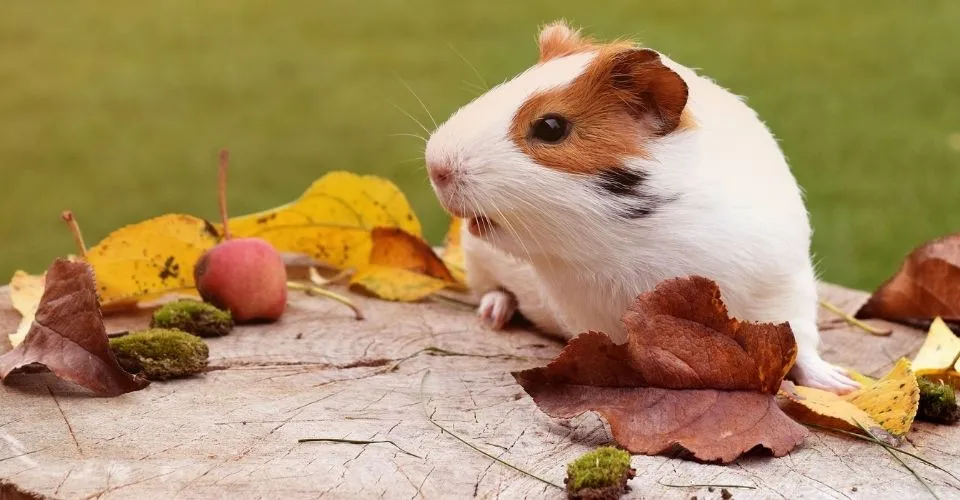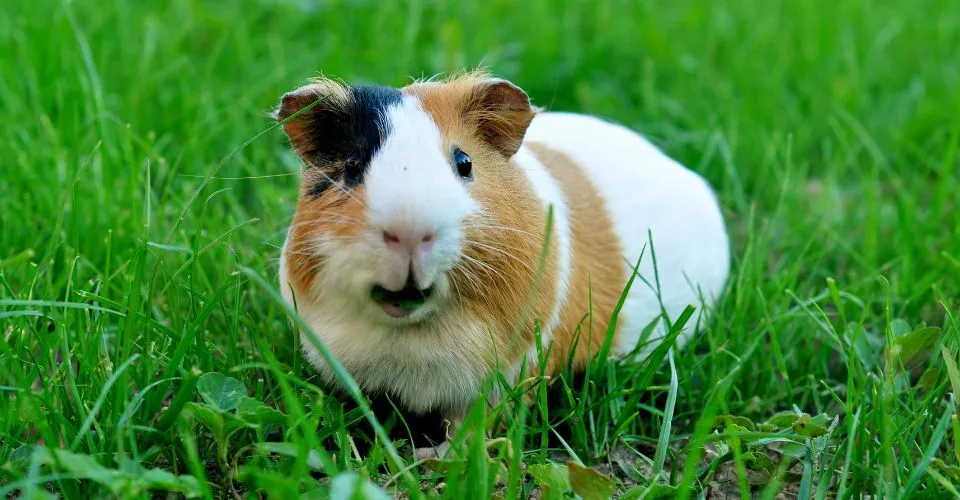Guinea pigs are active little creatures. They are always up to something—running around, squeaking, chewing, and playing with each other. What guinea pig owners get to see very little is guinea pig sleeping. This is the reason that many guinea pig owners wonder do guinea pigs ever sleep? If yes, why are their eyes almost never closed? Do guinea pigs sleep with their eye open?
If these questions have been keeping you up at night as well, continue reading. In this article, we are going to discuss all about guinea pigs sleeping.
Guinea Pig Sleeping
Guinea pigs sleeping pattern is quite different from that of humans. Let’s explore together while your piglet finds something to chew on.
Do Guinea Pigs Sleep?
Guinea pigs don’t really have a sleep schedule, but they do sleep. Instead of having a long sleep like humans, guinea pigs have numerous naps, lasting from ten to 30 minutes, throughout the day.
Just like sleep is essential for us to maintain good health, guinea pigs also need certain hours of sleep every day to stay healthy. On average, a guinea pig sleeps around four to six hours a day. Some guinea pigs might even sleep up to nine and a half hours each day. However, unlike us, guinea pigs distribute their sleeping hours into small naps throughout their day. These naps (sleeping time) are crucial for guinea pigs to replenish their energy for being active all the time.
Do Guinea Pigs Sleep With Their Eyes Open?
Guinea pigs typically sleep with their eyes wide open so that no predator can prey on them. In the wild, our furballs are prey animals and are always under the threat of becoming prey to predators like hawks and wolves. Due to this fear of imminent threat, guinea pigs always stay alert and keep their eyes open, even when they are sleeping.
Sleeping with eyes open would not only let your guinea pig see if some predator is trying to sneak up on him, but it would also discourage predators from attacking guinea pigs. Where attacking a prey sleeping with eyes closed increases the chances of success for predators, attacking a guinea pig with eyes wide open does not sound like a wise decision to most predators. They know that the chance of succeeding at catching a prey significantly reduces when the prey is on alert.
Do Guinea Pigs Sleep With Eyes Closed?
While guinea pigs typically sleep with their eyes open, they might close their eyes while sleeping if they feel completely safe and comfortable. If your guinea pig never closes its eyes, you need not worry, as the instinct of keeping its eyes open all the time seems to have been ingrained in its DNA. However, if your guinea pig is sleeping with its eyes closed, you should pat yourself on the back as you’re doing exactly what your guinea pig wants you to do—you are making him feel completely safe and comfortable.
If you just brought home a new pet guinea pig, you should not expect him to sleep with his eyes closed as he is just not comfortable at all. He is more likely to be a bit skittish and uncomfortable with the overwhelming experience in a new home and with all the stranger faces surrounding his cage.
How Long Do Guinea Pigs Sleep?
While guinea pigs might sleep for anywhere between four to nine and a half hours each day, instead of doing it all in one go like humans, guinea pigs take small naps of about ten to 30 minutes. So if you went to play with your guinea pig or feed him and he is sleeping, worry not; he would wake up in under 30 minutes.
Do Guinea Pigs Sleep More in Winter?
While guinea pigs don’t hibernate, they go into a deep sleep known as torpor in winter. So, just like humans, guinea pigs also spend most of their time curled and snuggled up in their hideaways and tunnels or burrowed in the thick substrate of hay. So, yes, guinea pigs sleep more in winter to conserve energy. That said, a guinea pig sleeping more than nine hours would mean that there is probably something wrong with the guinea pig.
When Do Guinea Pigs Sleep?
While in nature, guinea pigs like to sleep in burrows and in their cages; they like to sleep in tunnels, shelters, hides, etc.
In the wild, guinea pigs sleep in underground burrows, which not only help keep them safe from hungry predators but also protect them from harsh weather conditions—guinea pigs are very sensitive to both cold and hot weather. Instead of making these burrows themselves, guinea pigs try to find burrows that were dug by other rodents or naturally created. In our homes, guinea pigs depend on their loving owners to put hides and tunnels, etc. in their cages for them to sleep in safely and comfortably.
Do Guinea Pigs Like to Sleep in The Dark?
Though guinea pigs do not sleep at night like humans, they probably like to sleep in the dark. As discussed earlier, in the wild guinea pigs like to sleep in burrows where it is dark, and in domestication, guinea pigs like to sleep in shelters, caves, hides, and tunnels, where it is also comparatively dark. From this, we can assume that our piglets probably like to sleep in the dark.
So, if you want your guinea pig to sleep well, try to place your guinea pig cage away from direct sunlight and put as many hides and huts in the cage as possible.
Are Guinea Pigs Nocturnal?
Guinea pigs are neither nocturnal nor diurnal—they are playing and making noises throughout the day, and you can also hear that guinea pig sounds and little noise of guinea pigs navigating through their cage during the night. So, if guinea pigs are neither nocturnal nor diurnal, what are they?
Neither nocturnal nor diurnal, guinea pigs are actually crepuscular creatures, which means that they are the most active at twilight in the early morning before sunrise and in the evening before sunset. During these hours of dim light, guinea pigs are the most active as most predators up in the food chain have lesser visibility due to dim light.
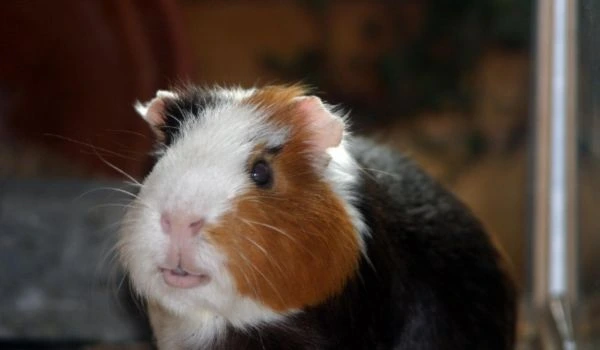
How Do Guinea Pigs Sleep?
Unlike cats and dogs, guinea pigs do not sleep on their side. They may lay on their side when they are fully relaxed and happy. If you see your guinea pig lying on the ground for more than just a few minutes, there is a huge probability that something is wrong with him, especially if he is twitching as well.
Guinea pigs are always on their toes, even when they are asleep as in the wild, they never know when a predator will attack and snack on them. Besides sleeping on their toes, guinea pigs like to sleep in dark and quiet places where they feel safe.
How to Tell If a Guinea Pig is Asleep or Not?
Given that guinea pigs sleep with their eyes open, it could be pretty darn tricky to know if a guinea pig is asleep or not. But there are some signs that will help you discern if your piglet is sleeping or just being lazy.
- When sleeping, the guinea pig’s whiskers and ears will be twitching.
- If guinea pigs are sleeping with their eyes open, you can observe Rapid Eye Movement (REM) sleep in guinea pigs.
- Guinea pigs sleeping would be very still.
- Guinea pigs rarely sleep out in open and bright light, so if your guinea pig is standing still in a dark place or hideout, he is probably asleep.
How to Help Your Guinea Pig Sleep Better?
As responsible guinea pig owners, it is our duty to provide the optimum conditions to make our guinea pigs comfortable and safe all the time. Here is what we can do to help our piglets sleep better.
1. Keep Them in Quiet Place
Guinea pigs are easily startled by loud noises. If you bang the door shut, your guinea pig would be startled—his sleep would be disturbed, and he might even experience stress. Similarly, if you are having a loud argument with some other family member in the room in your guinea pig’s cage is placed, your guinea’s sleep will be disturbed. Therefore, it is crucial that we keep our guinea pigs in a quiet place. Guinea pigs are always on alert, so the tinniest of the noises would trigger ‘flight’ mode in guinea pigs, and they would stay restless until they know for sure that all is good.
2. Provide Them with Tunnels and Hides
Guinea pigs like to sleep in dark and cozy places, so you should try to place several hides, caves, and tunnels in your guinea pig’s cage. Your guinea pig would love to take one nap in one hide and the next nap in the tunnel.
3. Keep Them Engaged
Guinea pigs are active little creatures, so when they are not sleeping, they need some task or some play to stay busy. To keep your guinea pig busy, besides providing him daily floor time and interactive play sessions, you should provide your piglet with some interactive toys to play with and keep themselves busy.
4. Provide Them with a Spacious Cage and Keep It Clean
Guinea pigs love to run and jump around. They love to explore as well. Therefore, it is crucial that we provide our piglets with a cage large enough in which they can chase around their cage mates. Besides getting a spacious cage for your piglets, you should also spot clean it every other day. You should change the guinea pig bedding every week and, if necessary, more frequently. You should never leave soiled and wet bedding in your piggy’s cage as it would not only make them uncomfortable but may also lead to the development of several health issues like pneumonia and bumblefoot.
5. Keep Guinea Pigs in Pairs
Guinea pigs are social creatures. While you can keep an individual pet guinea pig, it is strongly advised that guinea pig pets are kept in pairs. They keep each other company and calm each other in times of stress and make each feel more comfortable. Knowing that they are not alone, both guinea pigs can take quick naps whenever they want.
| Guinea Pig Sleeping Facts · Guinea pigs are neither nocturnal nor diurnal; rather, they are crepuscular. · Guinea pigs sleep with their eyes open. · Instead of having their sleep in one go, guinea pigs take small naps of about ten to 30 minutes. · In total, guinea pigs sleep for anywhere between four to 9 and a half hours. · Guinea pigs may close their eyes while sleeping if they feel 110% safe and comfortable. · Guinea pigs do not hibernate; rather, they go into a state of deep sleep, known as torpor, in winter. |
